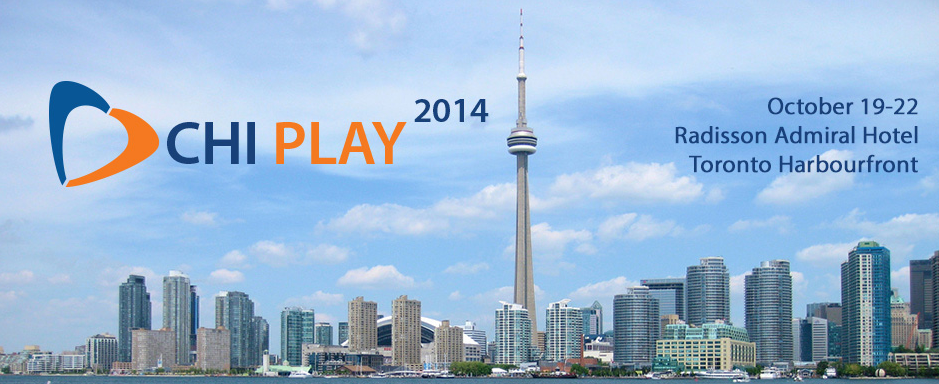CHI PLAY is a new international and interdisciplinary conference (by ACM SIGCHI) for researchers and professionals across all areas of play, games and human-computer interaction (HCI). We call this area "player-computer interaction".
The goal of the conference is to highlight and foster discussion of current high quality research in games and HCI as foundations for the future of digital play. To the end, the conference will feature streams that blend academic research and games with research papers, interactive demos, and industry case studies.
CHI PLAY grew out of the increasing work around games and play emerging from the ACM annual conference on Human Factors in Computing Systems (CHI) as well as smaller conferences such as Fun and Games and Gamification. CHI PLAY is sponsored by the ACM Special Interest Group for Computer-Human Interaction (SIGCHI).
CHI PLAY grew out of the increasing work around games and play emerging from the ACM annual conference on Human Factors in Computing Systems (CHI) as well as smaller conferences such as Fun and Games and Gamification. CHI PLAY is sponsored by the ACM Special Interest Group for Computer-Human Interaction (SIGCHI).
Important Dates (Submission Deadlines):
- May 18, 2014: Full papers (talks/demos/videos) and workshops
- June 26, 2014 Student competition, courses and tutorials, panels, doctoral consortium, industry case studies and works-in-progress
- Game Interaction
- Novel Game Control
- Novel Implementation Techniques that Affect Player Experience
- Evaluation of Feedback and Display Technologies for Games
- Gamification
- Neurogaming
- Persuasive Games
- Games for Health, Learning and Change
- Exertion Games
- Player Experience
- Virtual and Augmented Reality Games
- Games User Research
- Game Evaluation Methods
- Psychology of Players and Games
- Player Typologies
- Accessible and Inclusive Game Design
- Novel Game Mechanics Impacting Player Experience
- Casual Game Design Studies
- Social Game Experiences
- Serious Games
- Alternate Reality GamesTools for Game Creation
- Developer Experiences and Studies of Developers
- Industry Case Studies




















